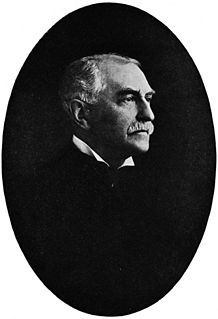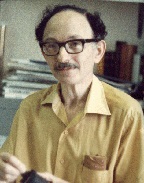A Quote by Georg C. Lichtenberg
The man was such an intellectual he was of almost no use.
Quote Topics
Related Quotes
There are two principles on which all men of intellectual integrity and good will can agree, as a 'basic minimum,' as a precondition of any discussion, co-operation or movement toward an intellectual Renaissance. . . . They are not axioms, but until a man has proved them to himself and has accepted them, he is not fit for an intellectual discussion. These two principles are: a. that emotions are not tools of cognition; b. that no man has the right to initiate the use of physical force against others.
Many a man renounces morals, but with great difficulty the conception, 'morality.' Morality is the 'idea' of morals, their intellectual power, their power over the conscience; on the other hand, morals are too material to rule the mind, and do not fetter an 'intellectual' man, a so-called independent, a 'freethinker.'
The intellectual attainments of a man who thinks for himself resemble a fine painting, where the light and shade are correct, the tone sustained, the colour perfectly harmonised; it is true to life. On the other hand, the intellectual attainments of the mere man of learning are like a large palette, full of all sorts of colours, which at most are systematically arranged, but devoid of harmony, connection and meaning.
There is a race between the increasing complexity of the systems we build and our ability to develop intellectual tools for understanding their complexity. If the race is won by our tools, then systems will eventually become easier to use and more reliable. If not, they will continue to become harder to use and less reliable for all but a relatively small set of common tasks. Given how hard thinking is, if those intellectual tools are to succeed, they will have to substitute calculation for thought.
No man may initiate the use of physical force against others. No man-or group or society or government-has the right to assume the role of a criminal and initiate the use of physical compulsion against any man. Men have the right to use physical force only in retaliation and only against those who initiate its use. The ethical principle involved is simple and clear-cut: it is the difference between murder and self-defense.
Let an ultraintelligent machine be defined as a machine that can far surpass all the intellectual activities of any man however clever. Since the design of machines is one of these intellectual activities, an ultraintelligent machine could design even better machines; there would then unquestionably be an 'intelligence explosion,' and the intelligence of man would be left far behind. Thus the first ultraintelligent machine is the last invention that man need ever make.
The animals you say were 'sent' for man's free use and nutriment. Pray, then, inform me, and be candid, why came they aeons before man did, to spend long centuries on earth. Awaiting their devourer's birth? Those ill-timed chattels, sent from heaven, were, sure, the maddest gift e'er given - 'sent' for man's use (can man believe it?) when there was no man to receive it!


































